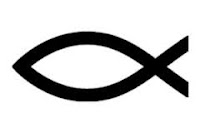QUESTION #47 My God, my God, why hast thoui forsaken me?
QUESTIONS JESUS ASKED BIBLE STUDY
Read Matthew 27:23-46 KJV:
…My God, my God, why hast thou forsaken me? (Matthew 27:46)
JESUS ON THE CROSS
Reference: Matthew 27:23-46, Mark 15:34, Luke 23:46, john 19:30
Those terrifying words occur in two Gospels - Matthew 27:46 and Mark 15:34 - as Jesus is hanging on the cross near death.
Now, one very important fact to remember is that these words are the exact first words of Psalm 22. And that is important because Jesus seems to have known that the whole psalm, in some way or other, was about Him.
At least three other parts of this psalm are quoted in the story of His death. You’ve got verse 1, this is what the psalm says: “My God, my God, why hast thou forsaken me?”
And in verse 7: “All they that see me laugh me to scorn: they shoot out the lip, they shake (wag) the head…” -- and those are the same words quoted in Matthew 27:39: “And they that passed by reviled him, wagging their heads” to show that this psalm is being played out in the death of Jesus.
In verse 16 of the psalm we read, “They have pierced my hands and feet.”
And in verse 18, “They divide my garments among them, and for my clothing they cast lots.”
Jesus knew ahead of time what He was doing and what would happen to Him and why He was doing it. He came for just this purpose. To die for the sins of the world (1 John 2:2). Listen to these words in John 18:4, “Then Jesus, knowing all that would happen to him, came forward and said to them, “Whom do you seek?” He gave himself up. He knew. He knew it was coming. He knew everything.
So, these words - part of this psalm that it contains - as it were - is a prediction for Jesus’ last hours. It could be that Jesus’ intent in quoting this Psalm as He cried out was to point His hearers to that psalm (back to the scriptures). Even while experiencing the agony of the cross, Jesus was teaching the crowd and proving yet again that He was the Messiah who fulfilled Scriptures.
SO AS JESUS CRIED OUT THESE WORDS: My God, my God, why hast thou forsaken me?
1. There was a real forsakenness for our sake.
2. He was expressing desolation, not asking for an answer.
3. He was amazingly fulfilling Scripture in the horror of it all and witnessing to the perfection of the plan of salvation.
Crowds gathered at Golgotha to watch the death of Jesus. At the cross, Jesus was nailed between two criminals, and as he was mocked, one of them asked Jesus to remember him (Luke 23:24), Jesus did (Luke 23:43). Jesus looked to heaven and asked God “Father, forgive them, for they know not what they do” (Luke 23:24). Jesus cried with a loud voice, “Father, into Thy hands I commend My Spirit” (Luke 23:46). And in John’s account Jesus says, “It is finished” He bowed His head, and gave up the ghost.
When Jesus said “it is finished” on the cross and took His last breath - it meant that the penalty for sin had been paid in full!
The death of Christ was our Passover Lamb being sacrificed. The concept of a Passover lamb refers back to the Old Testament Book of Exodus. Then nation of Israel was in bondage in Egypt, and God was going to slay the firstborn of every family in Egypt. He told the Jews to kill a spotless lamb, and then to put the blood of that lamb over the doorposts of the house. Later that night when He went to slay the firstborn, if He saw the blood on the doorposts of the home, He would pass over it. He would accept that blood as an indication that a death had occurred to take the place of that family’s firstborn (Exodus 12).
This event foreshadowed the time when God would provide His Son as our Passover Lamb. When John introduced Jesus to the nation of Israel, he said, “Behold the Lamb of God who takes away the sins of the world” (John 1:29). His announcement declared that Jesus is that ultimate sacrificial lamb, the only One who can pay the penalty for sin. Therefore, all the sacrifices of the Old Testament looked forward to the coming of Christ.
The purpose of Jesus’ death could not be any clearer. The message resounds throughout the Old and New Testament. He died in our place to provide atonement and forgiveness and pay the penalty for our sins once and for all.
And in order to be saved one must apply that blood to their life in order to blot out their sins -- just as the Israelites had to apply the blood to the doorpost of their house. How can you apply the blood of the Lamb to blot out your sins? Peter preached this message in Acts 2:22-41.
If you believe that Jesus died for your sins - you will act upon that faith. There are steps one must take in order to have their sins forgiven and to be saved by the blood of the Lamb.
How must one be saved? (see Acts 2:37-39)
To know more see - Plan of Salvation pamphlet in pocket of study.
Notes:



Comments
Post a Comment
Please feel free to comment or leave a message. I will respond as soon as possible. God bless!